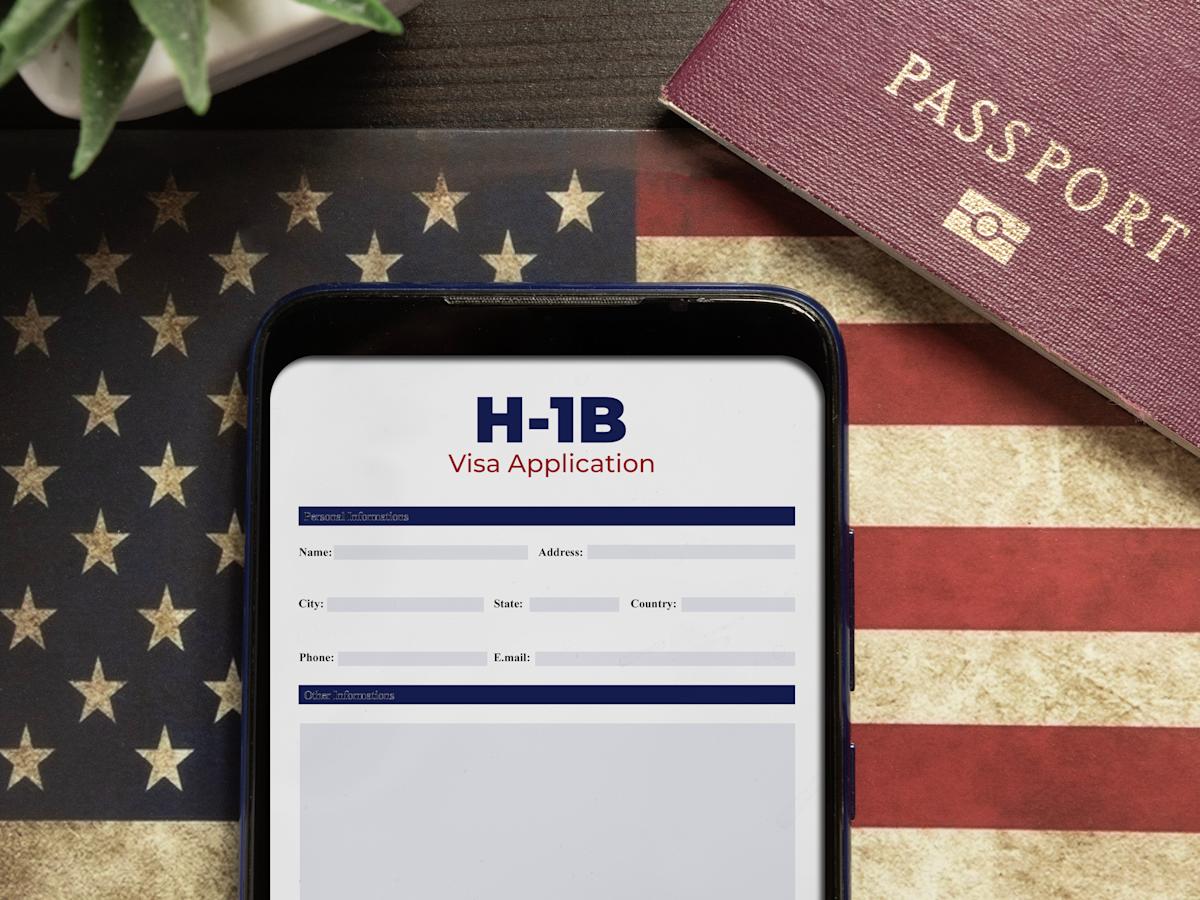-
Trump’s $100,000 H-1B visa fee surprised Silicon Valley, which relies heavily on the visa program.
-
H-1B visas have been key for AI firms looking to hire skilled global talent.
-
Industry leaders fear the fee favors Big Tech, hindering startups and US competitiveness.
President Donald Trump’s new $100,000 H-1B visa fee has been the talk of Silicon Valley since it was announced in an executive order a week ago.
Business Insider spoke to AI executives outside Big Tech, who said they worry the fees could hinder progress and limit the potential of startups. It could also help the US develop its own talent, one of them said.
H-1B visas allow US employers to hire highly skilled foreign workers for specialized jobs. These visas have become a mainstay of the tech industry, with tech giants and startups alike hiring thousands of H-1B workers every year.
The news of the executive order sent many in Silicon Valley into a panic as executives, tech workers, and corporate lawyers grappled with the order’s fine print.
Here’s how some AI executives think the changes could affect their companies, their employees, and the wider tech industry.
Jain, 49, was born in Jaipur, India. He moved to the Seattle area in 1966 after earning an undergraduate degree at the Indian Institute of Technology in Delhi. His first job in the US was as a software engineer at Microsoft. He founded Glean in 2019 and now serves as CEO.
The company, which first launched as an enterprise search tool, now makes chatbots and AI agents for businesses. It reached a $7.2 billion valuation in June.
Jain shared his thoughts on the visa change in an email to Business Insider:
“The strength of US companies has always come from access to the best global talent — talent that brings diverse perspectives, which drive innovation,” he said. “Limiting access to global talent undermines progress, not just for individual companies but for the technology industry as a whole. We’ll continue to support our employees and advocate for policies that allow the best ideas and talent to thrive.”
Glean declined to share the number of its employees who are on H-1B visas with Business Insider. However, a spokesperson for the company said the policy changes haven’t altered their hiring plans.
“Our focus hasn’t changed — we’ll continue hiring the best talent for the job. Like the rest of the industry, we’re watching these policy shifts closely because access to global talent is critical to innovation,” the company said.
-
Trump’s $100,000 H-1B visa fee surprised Silicon Valley, which relies heavily on the visa program.
-
H-1B visas have been key for AI firms looking to hire skilled global talent.
-
Industry leaders fear the fee favors Big Tech, hindering startups and US competitiveness.
President Donald Trump’s new $100,000 H-1B visa fee has been the talk of Silicon Valley since it was announced in an executive order a week ago.
Business Insider spoke to AI executives outside Big Tech, who said they worry the fees could hinder progress and limit the potential of startups. It could also help the US develop its own talent, one of them said.
H-1B visas allow US employers to hire highly skilled foreign workers for specialized jobs. These visas have become a mainstay of the tech industry, with tech giants and startups alike hiring thousands of H-1B workers every year.
The news of the executive order sent many in Silicon Valley into a panic as executives, tech workers, and corporate lawyers grappled with the order’s fine print.
Here’s how some AI executives think the changes could affect their companies, their employees, and the wider tech industry.
Jain, 49, was born in Jaipur, India. He moved to the Seattle area in 1966 after earning an undergraduate degree at the Indian Institute of Technology in Delhi. His first job in the US was as a software engineer at Microsoft. He founded Glean in 2019 and now serves as CEO.
The company, which first launched as an enterprise search tool, now makes chatbots and AI agents for businesses. It reached a $7.2 billion valuation in June.
Jain shared his thoughts on the visa change in an email to Business Insider:
“The strength of US companies has always come from access to the best global talent — talent that brings diverse perspectives, which drive innovation,” he said. “Limiting access to global talent undermines progress, not just for individual companies but for the technology industry as a whole. We’ll continue to support our employees and advocate for policies that allow the best ideas and talent to thrive.”
Glean declined to share the number of its employees who are on H-1B visas with Business Insider. However, a spokesperson for the company said the policy changes haven’t altered their hiring plans.
“Our focus hasn’t changed — we’ll continue hiring the best talent for the job. Like the rest of the industry, we’re watching these policy shifts closely because access to global talent is critical to innovation,” the company said.











Leave feedback about this